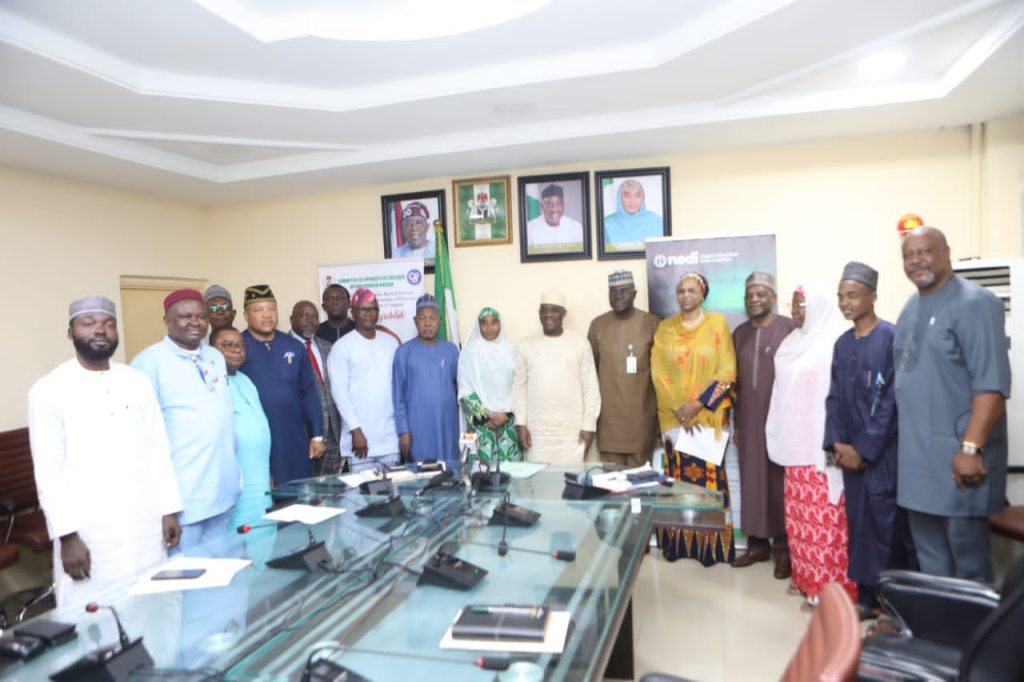Kabiru Haruna
In a bold stride toward transforming Nigeria’s healthcare education and reducing the nation’s dependency on medical tourism, the Minister of Education, Dr. Maruf Olatunji Alausa, has inaugurated a 19-member Implementation and Monitoring Committee tasked with overseeing the establishment of medical simulation centres across the country.
Speaking at the inauguration ceremony, Dr. Alausa emphasized the importance of simulation technology in advancing healthcare delivery and medical training in Nigeria.
“It is a national shame that a country as vast and talented as Nigeria does not currently have a single functional medical simulation centre,” the Minister declared. “With this initiative, we aim to change that narrative and develop a sustainable structure that can train thousands of healthcare personnel annually.”
According to Dr. Alausa, the initiative aligns with President Bola Ahmed Tinubu’s Renewed Hope Agenda, particularly in revitalizing the education and health sectors.
He noted that the Tertiary Education Trust Fund (TETFund) plays a significant role in this development, as it continues to serve as a vital instrument for national transformation through higher education and research investments.
The newly formed committee, chaired by Professor Wali Suleiman, will oversee the establishment of an initial eight simulation centres, with plans to expand further in the coming year.
The members will serve a three-year tenure, during which they are expected to ensure compliance, develop key performance indicators, and monitor the overall implementation process.
Dr. Alausa urged the committee to discharge their responsibilities with integrity, transparency, and a deep sense of service to the nation.
“This is not just a project,” he said, “it is a legacy that we must all build to ensure improved access to quality healthcare and enhanced patient safety.”
In her remarks, the Minister of State for Education, Professor Suwaiba Sa’id Ahmad, highlighted the significance of the initiative, stating that Nigeria continues to lose valuable resources to medical tourism due to inadequate training infrastructure.
“This simulation project is timely and vital in equipping our students with 21st-century medical tools and techniques,” she noted.
Permanent Secretary of the Federal Ministry of Education, Mr. Abel Olumuyiwa Enitan, expressed confidence in the committee’s capacity to deliver, acknowledging the commitment already shown by its members and praising President Tinubu’s dedication to the education and health sectors.
Also speaking, the Executive Secretary of TETFund, Arc. Sonny S.T. Echono, described the simulation centres as a “hub for innovation” and a “transformational intervention” in the academic and healthcare landscapes.
He emphasized the importance of aligning medical training with modern technological advancements and reiterated TETFund’s support for successful implementation.
In his acceptance speech, Committee Chairman Professor Wali Suleiman assured the Honourable Minister and the nation of the committee’s readiness to deliver on its mandate.
“This is an opportunity to build a lasting legacy. With the right support and teamwork, we will meet and exceed expectations,” he affirmed.
This landmark initiative marks a critical step towards a future where Nigeria’s healthcare system is strengthened through modern education infrastructure, reducing reliance on foreign medical services and increasing the capacity to manage local health challenges effectively.





